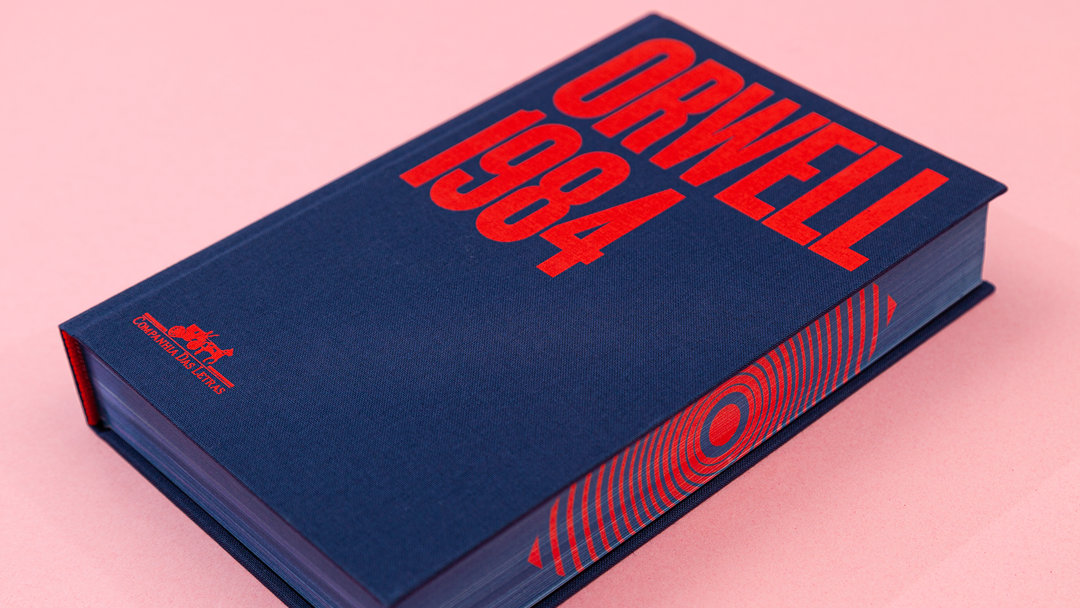
In George Orwell’s Nineteen Eighty-Four, members of the Party in Oceania are required to view a short film each day on the telescreen. The propaganda presented enemies of the Party and encouraged viewers to shout their disgust and contempt at the screen. The ritual was known as the “Two Minutes Hate” and is described by Winston Smith, the novel’s protagonist, in the first chapter:
The horrible thing about the Two Minutes Hate was not that one was obliged to act a part, but that it was impossible to avoid joining in. Within thirty seconds any pretence was always unnecessary. A hideous ecstasy of fear and vindictiveness, a desire to kill, to torture, to smash faces in with a sledge hammer, seemed to flow through the whole group of people like an electric current, turning one even against one’s will into a grimacing, screaming lunatic.
The Party used Two Minutes Hate as a control mechanism, a means to channel Oceania citizens’ repressed feelings of angst and contempt from living under a totalitarian regime towards its enemies. It also removed viewers’ sense of individuality, preventing them from thinking on their own and instead aligning with the thoughts and feelings of Big Brother.
Thankfully, we are far from the dystopian society depicted by Orwell. But is it possible that a daily ritual—even one limited to two minutes in duration—could influence an individual’s thinking and behavior?
We seem to believe so.
A short bit of Google research uncovers 200,000+ web pages offering a “daily dose” of something and more than 1,900 “daily devotional” books are available from Amazon. Clearly we have embraced the notion of a daily ritual—whether it be for comfort, motivation, organization, inspiration, appreciation or enlightenment. For some, the establishment of a routine helps provide direction, order and purpose. For others, a daily ritual helps provide clarity, focus and peace. Regardless of the reason, if it yields benefits we will likely continue the practice and extoll its virtues to everyone else in our network.
Hence why content producers—especially those dependent on advertising dollars—want to become one of your daily rituals. USA Today wanted you to start the morning with one of their papers. Later the Huffington Post wanted you to switch and check the latest news via their website. Then Facebook offered a different proposition and likely got you to spend your lunch hour with them, although Digg thought you would be better served visiting their homepage instead. Today the local talk radio station hopes you tune in while driving home from work, but recognizes you may have already opted to listen to a podcast instead. And the big four TV networks continue to try and get you to end each night with them in spite of the clear shift to streaming services like Netflix, Hulu and Disney+.
While the list of available content options is endless, the producers all want the same thing: to become part of your routine. Because that provides them a predictable, consistent, repeated opportunity to sell ads that try and influence your thinking and behavior. Sounds a lot like Two Minutes Hate. Fortunately it’s not.
Unlike Orwell’s fictitious society, making someone else’s content part of your routine is entirely your discretion. You can opt in and opt out at any time and are under no obligation to react or respond in any way. Essentially, you get to pick “The Party” whose content proves most suitable to your wants and needs.
And that is the challenge for today’s marketers trying to be included in their customer’s daily ritual: getting picked.
Nearly two decades ago Seth Godin wrote about the end of the “TV-Industrial complex”, meaning marketers no longer have the power to command the attention of anyone they choose, whenever they choose. TV and radio advertising continue to rely on “interruption marketing”, but most internet based communication platforms (web, social media, streaming, etc.) have empowered the user to mute, skip or swipe aside advertising. Add to that the myriad of alternative options for consumption and it becomes clear the power has shifted to the consumer. Thus marketers seeking attention must pay greater respect to their target customers and produce content of greater quality and relevance.
Because we all have daily rituals when it comes to content consumption, but Big Brother isn’t setting the agenda.

